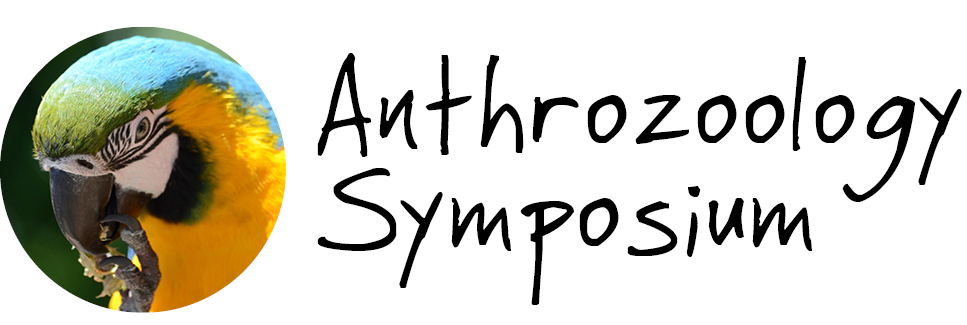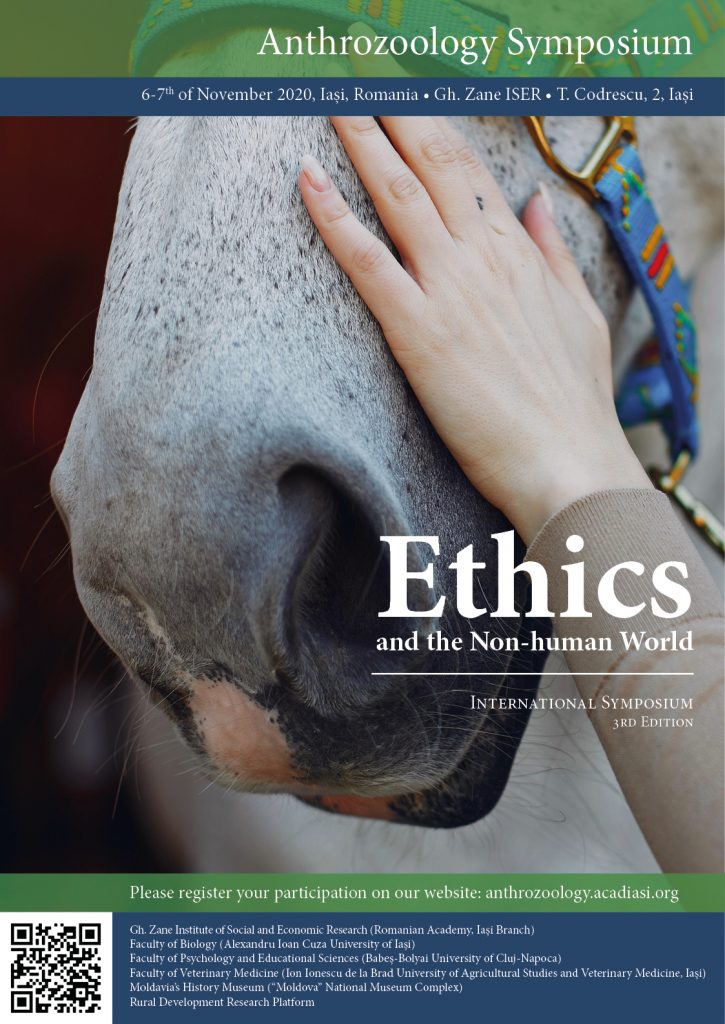The Anthrozoology Symposium reaches its third edition this year (2020), and it is an event organized by “Gh. Zane” Institute of Economic and Social Research (Romanian Academy – Iasi Branch), in association with the Faculty of Biology (“Al. I. Cuza” University of Iasi), Faculty of Psychology and Educational Sciences (“Babes – Bolyai” University of Cluj), Faculty of Veterinarian Medicine (“Ion Ionescu de la Brad” University for Agricultural Studies and Veterinarian Medicine of Iasi), Rural Development Research Platform, and Moldavia’s History Museum (“Moldova” National Museum Complex).
As animals are omnipresent in our lives, society, and thoughts, it would be quite difficult to understand ourselves as humans in their absence. Thus, due to their ubiquity in our lives, we are concerned with understanding the ways in which animals were, have been, and are still represented in different cultures and societies worldwide, to unravel the way they are perceived, imagined, and experienced and why they bear different significations. Further, we are interested in finding ways that will improve our relations and hopefully lead to a better life for all the individuals involved (human and non-human) and for the welfare of the community, in general. The fact that we are able to know more and understand better the other animals should normally lead to changes in the ways we treat them. However, our long history in understanding nature as simple resource that will and should be used merely for the benefit of our species makes this transition much more difficult. The belief that humans are morally and cognitively superior is deeply rooted in personal convictions, social organization, and legal systems across our world. The fact that billions of animals are killed and exploited for the human use is hardly affected by the knowledge of the extraordinary abilities possessed by other beings to feel and suffer in similar ways to us. It is true that our abusive attitude to the other animals has led to the re-discovery of ethical theories that state the inner value of all living beings and has also produced many social movements which support the animals’ protection and rights. But the impact of this non-anthropocentric view, although on a continuous rise, is still not enough. Under the circumstances, it is absolutely necessary to re-evaluate our relations with the non-human world based on feelings of empathy, compassion, and the belief that all sentient beings deserve moral consideration.
This year’s edition of the Symposium is addressing the subject of how can we think beyond traditions and preconceptions to reach a morality where all living beings deserve respect, whether they are rational, they have language, or the ability to adhere to the moral community. Thus, we will be able to produce more inclusive theories and higher effective strategies that will hopefully help us protect the other animals from further suffering and exploitation. Within the third edition of the Anthrozoology Symposium, we would like to invite you take part in a debate forum focused on the following topics concerning the human — animal interactions:
• Ideas, concepts, and beliefs about animals;
• Theories about the differences and distance between humans and animals;
• Animal rights and human responsibilities;
• Species extinction and human responsibility;
• Animals in literature, mythology, art, and folklore;
• Animal psychology;
• Cognitive ethology;
• Mental models and economic value in human-animal interactions from a historic perspective;
• Animal protection movement and the laws that support it.
The Anthrozoology Symposium will take place online (via Google Meet), between the 6th and 8th of November, 2020.

